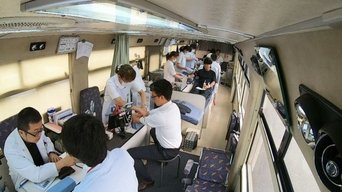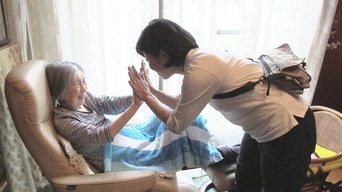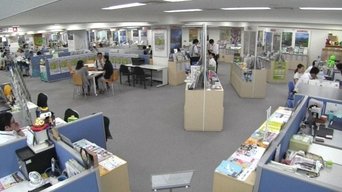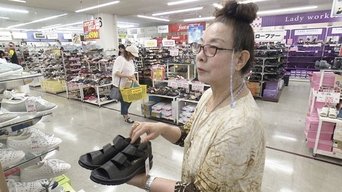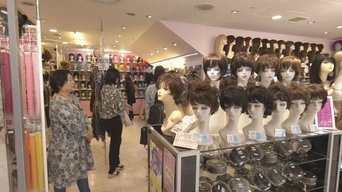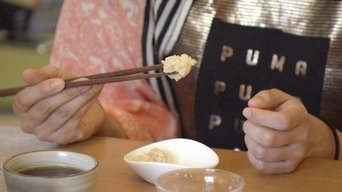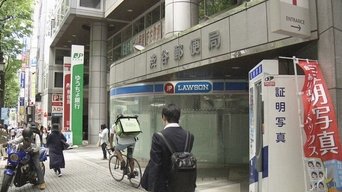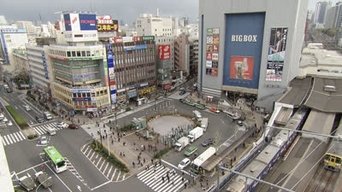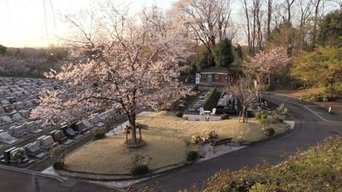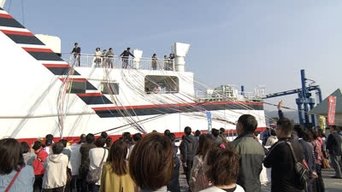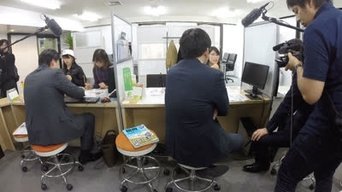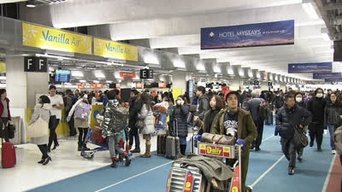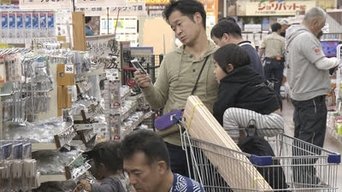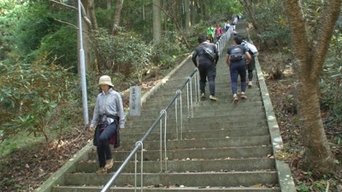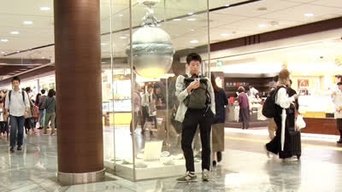Document 72 Hours Season 7

Three days in the life of...Stay in one location for 72 hours, catching glimpses into people's lives as they open up and share. NHK World English Broadcast Version
Watch NowWith 30 Day Free Trial!
Document 72 Hours
2013
Three days in the life of...Stay in one location for 72 hours, catching glimpses into people's lives as they open up and share. NHK World English Broadcast Version
Watch Trailer
Document 72 Hours Season 7 Full Episode Guide
As Christmas approaches, Narita Airport's immigration inspection area heaves with visitors flying in. For 3 days, we spoke to travelers passing through this gateway to Japan.
We follow a blood donation bus on its journey from town to town in Hokkaido Prefecture. Japan as a whole faces a chronic shortage of blood donors, but Hokkaido has the highest donor rate in the nation. In a prefecture where the population density is low, this bus is what makes it possible to collect everyone's blood donation by traveling from one town to another. Some of the donors we meet are: a man who has donated blood 289 times, a woman who is donating blood as an act of gratitude and a nursery school teacher who feels refreshed by having blood drawn. We spend 3 days visiting small towns in Hokkaido, on a mission of compassion.
As Japan's society continues to gray, the nation's hospitals are facing a chronic shortage of beds. At the same time, a growing number of people want to spend their final days at home rather than in a hospital, and others would rather care for ill relatives in their own home. Home care nurses provide invaluable support for people who choose to receive medical treatment at home. For 3 days, we followed the home care nurses that look after more than 190 patients living in Higashikurume in western Tokyo. What do these visits mean to the patients, who ranged from young children with cerebral palsy to the city's increasingly elderly residents?
Japan's population continues to gravitate to the Tokyo area, but some people long to move from the capital to different corners of the nation. A consultation center in Tokyo's Yurakucho district is a magnet for anyone considering such a shift. At the center, consultants from 39 prefectures offer free advice, information, and handy tips about housing, employment, and any other aspect of daily life that awaits new residents. About 70% of people who come seeking for advice are aged 40 or younger. Among the visitors we met over 3 days was a man in his 60's looking for a new place to live after a recent divorce, and a man who took early retirement so he could return to Kyushu and spend more time with his children. Why do people want to move from Tokyo? And what do they hope to find after moving to their new home?
A huge footwear store in Kobe attracts customers from far and wide. About 100,000 pairs of shoes, sandals, and boots fill the shelves of this store, which covers over 3,000 square meters. But the biggest surprise inside the store is the prices. Sandals are priced from just 499 yen (less than $5), pumps start at 980 yen, and 2 pairs of business leather shoes cost a total of 5,000 yen. Every day, customers seeking a bargain on footwear are drawn to this store. But for many of them, shoes are more than just something worn on their feet. For 3 days in early summer, we listened to the personal stories of the customers who come here to save money for the next step in their life.
For some people, a wig is a "secret item" that dramatically transforms their appearance and mood. An underground shopping mall in Shinjuku, Tokyo, is home to a wig shop that has been providing all manner of wigs to men and women, young and old, for more than 40 years. Some of the customers we meet include a woman in her 40's worried about her thinning hair, a fitness instructor seeking a wig that would suit her costume for a dance performance, and a middle-aged man who enjoys cross-dressing. Each customer carefully selects a wig that matches their needs. What are they hoping to change about themselves, and who do they want to become?
A few minutes' walk from Asagaya Station, Tokyo, is a traditional goldfish fishing pond that has been operating in a quiet residential area for more than 90 years. Anybody can casually stop by and drop a line in the pond, which is popular with adults and children alike. The customers we encountered included a man who has been regularly fishing there for more than 50 years, a man who drives for 3 hours every weekend to try his luck at the pond, and a woman who catches up to 200 goldfish in just one day. What are they thinking about as they sit around this pond richly stocked with various varieties of goldfish?
Amid the ongoing health boom, many people have been tempted to try "short-term fasting" to improve their physical and mental condition. Visitors to a facility in Izu Kogen in Shizuoka Prefecture, willingly fast for several days not only to become healthier, but also to shake off feelings of gloom and unhappiness. The visitors include a man who manages a real estate agency who says that the fasting has given him a whole different perspective on life, a woman needing a break from caring for her elderly father, and a woman who took over her husband's design company after he died of cancer 10 years ago. During their stay, they eat only a rice porridge and a bland bowl of miso soup each morning and night. What do these people want to change, and what do they hope to achieve by fasting at this facility?
A few minutes' walk from the famous intersection in Shibuya, Tokyo, is a 24-hour post office. In recent years, this post office has handled an increasing volume of packages for delivery, mainly due to the popularity of online flea market apps among people of all ages. In late April and early May 2019, Shibuya was abuzz as people celebrated the dawn of the Reiwa era. For 3 days spanning this period, we spoke to customers around the clock at Shibuya Post Office, including a woman sending clothes she sold online, an elderly man who has collected stamps for over 60 years, and a woman sending heartfelt messages to her 3 adult children. What else were people posting? And what sentiments were being delivered along with their postcards and packages?
Takadanobaba is home to dozens of universities, university preparatory schools, and vocational colleges, making it one of Tokyo's most popular student districts. An ordinary open space inside the rotary in front of the station is a regular meeting spot for students going to parties or club activities at all times of the day and night. Among the people we meet assembling at this hive of activity are university students going out for a few drinks after their soccer training, and a group of middle-aged men who have come for a reunion to take a walk down memory lane in a district where they spent a several years of their youth. For 3 days straddling the end of one academic year and the start of a new one, we asked the students, past and present, about why this iconic location holds a special place in their hearts.
At a large cemetery in a Tokyo suburb, cherry trees grow in between rows of traditional gravestones. The trees themselves are also graves - a form of tree burial called "jumokuso" gaining popularity across Japan as more people express their wish to return to nature after they die. For 3 days during cherry blossom season, we meet people flocking to the cemetery to pay their respects, including a man on his weekly visit to the grave of his late wife, who stood by him through difficult times; 3 brothers who always visit their father's grave together around this time of the year; and a woman who talks to her late husband as she sips on a beer, as they used to enjoy doing together.
Spring in Japan is a time of new beginnings and also goodbyes. On Fukue Island, the largest of the Goto Islands in the far west of Japan, locals have made sending off people moving away an intrinsic part of life. In the closing days of March, when many people move for work, education, marriage, or other reasons, the terminal building at the island's ferry port - and its wharf - fills with relatives, colleagues, classmates, former students, and friends who come to bid farewell. These high-spirited goodbyes feature a mixture of hugs, tearful messages, songs, and signs. For 3 days, we watched the people embarking on the next chapter of their lives away from Fukue, and the locals ensuring they get a farewell to remember.
A gym in a residential area of Tokyo offers classes for a slightly unusual activity where going backward is actually a sign of progress - doing backflips. These lessons are becoming increasingly popular among children, housewives, and company employees who drop by to master their technique after work. Among the people at this gym are a man in his 40's who has long admired Jackie Chan and a young woman who hopes doing backflips might give her cosplay photos a stylish edge. For 3 days, we spoke to people determined to find out if doing a complete backflip will also help their lives take a turn for the better.
This episode focuses on a small real estate agency near Fukuoka Prefecture's Nakasu entertainment district, the biggest in Kyushu. Despite being tucked away on the 3rd floor of a multitenant building and displaying no signage, this agency receives a steady stream of customers who have seen its online listings. This agency offers everything from dirt-cheap apartments where monthly rent costs less than 20,000 yen (about US $180) to commercial properties seeking new tenants. The growing range of properties handled by this real estate agency reflects the recent increase in Fukuoka's population. Moving to a new apartment or home can herald the start of a new chapter in life. What sort of people come to this real estate agency, and why do they want to rent a place?
If you start with a charm that supposedly brings good luck and offer to barter it with passersby on a bridge in Osaka Prefecture's Dotonbori district, what sort of trades will happen and people will you meet? For 3 days, we put this question to the test. The people who swapped items with us included a Frenchman who fell in love with Osaka and decided to live there, a women's soccer team visiting the city on a university graduation trip, and an elementary school student traveling with his father after participating in a national karate tournament. Through a series of trades, a connection gradually forms among strangers who otherwise would have no link with each other. When 72 hours are up, what has the "bringer of good luck" turned into?
Since opening in 2015, Narita Airport's Terminal 3 for low-cost carriers has attracted more passengers each year as travelers swoop on the cheap airfares these airlines offer. Even though it lies about 600 meters from the nearest train station -- a bit of a challenge for people carrying bulky luggage -- around 20,000 people use this terminal every day. For 3 days in late December 2018, we spoke to people at this airport, including its 24-hour departure lobby and adjoining food court. As the year draws to a close, where will travelers fly off to?
In this episode, the scene takes place at a so-called table-sharing lounge in Sendai City, where men and women of all ages and backgrounds come in the hope of finding someone special while they are matched with random strangers. The customers we encounter include a group of young women who say that there's a lack of men in their town, a hairstylist trying to get over a difficult breakup, and a 23-year-old farmer who wants to get married. The spread of social media has made it simple to contact someone in an instant, but many people we spoke to say they hardly meet anyone new in person. Who are they hoping to meet at this lounge? For 3 days around Christmas 2018, we follow the men and women trying to give Cupid a helping hand.
Our stage this time is one of the largest home centers in Japan, located in a suburb east of Tokyo. From daily necessities to building and gardening materials, every product imaginable can be found here. A couple with a shared love of DIY (Do It Yourself) pick out lumber to rebuild a fence destroyed in a typhoon. Meanwhile, a woman working in rehabilitation looks for materials to make a device to help a patient. We listen to the stories of these people as they attempt to improve their lives through DIY.
In a quiet mountain town in Kumamoto Prefecture, there's a flight of 3,333 stone steps. Measuring 2.1 kilometers, it's the longest in Japan and takes the average adult about 90 minutes to climb. The steps attract people who want to put themselves through a strenuous challenge for various reasons. One group of university students makes the climb knowing they will go their separate ways after graduation. An elderly beautician takes on the steps with apprentices who are like sons to him. Some visitors go up and down several times a day. With anguished looks and trembling legs, they test their limits. We spent 3 days meeting people going up and down the 3,333 steps.
Each day, more than 1.8 million people pass through Tokyo Station. For 50 years, the Gin-no-suzu (silver bell) waiting area inside the station has been a popular landmark and a favorite spot to meet up with others. Countless reunions and farewells take place under this huge bell that adorns the center of the waiting area. The people waiting there include a group of elderly men who meet there on each other's birthdays before heading off to celebrate, and far-flung fans of a pop band who met online and are going to a concert together. But for some, finding Gin-no-suzu inside the sprawling station is not so easy and rendezvous plans do not work out as expected. For 3 days, we talked to the people waiting at this iconic spot -- and to the people they were meeting.
About 5 million people visit Hakodate in Hokkaido Prefecture, but in recent years this picturesque northern city has become known for another down-to-earth attraction: a hamburger restaurant that offers huge servings. Its unique hamburgers include fillings such as deep-fried chicken and crumbed pork cutlets. Many customers who come for a hearty lunch get so full that they do not need to eat dinner. Although Hakodate often tops surveys of attractive places to visit, the city also suffers from a falling population and high unemployment rate. For 3 days, we asked customers at this restaurant that has been loved by locals for decades about what they define as happiness
Free Trial Channels
Seasons






